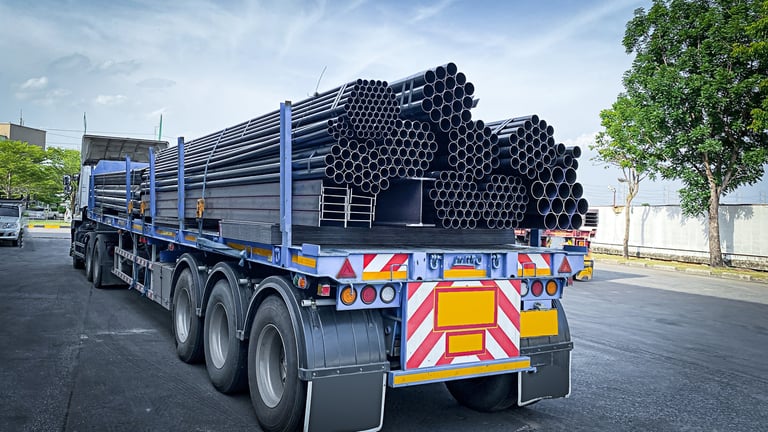
Efficient Logistics For Building And Industrial Materials: The Role Of FTL And LTL In Construction And Manufacturing Supply Chains

Streamlining the supply chain in construction and manufacturing is crucial for reducing project downtime and optimizing inventory management. Discover how Full Truckload (FTL) and Less Than Truckload (LTL) services play a pivotal role in ensuring the timely delivery of heavy, oversized, and fragile materials.
Understanding FTL and LTL in Logistics
Full Truckload (FTL) and Less Than Truckload (LTL) are two critical logistics services that cater to different shipping needs. FTL services involve the transportation of goods that fill an entire truck, making it ideal for large, heavy, or bulky shipments. On the other hand, LTL services are designed for smaller shipments that do not require a full truck, allowing multiple shippers to share the same vehicle and reduce costs.
Both FTL and LTL play essential roles in the logistics chain, ensuring that various types of materials, including heavy, oversized, and fragile items, are transported efficiently and safely. Understanding the differences between these two services helps businesses choose the most appropriate shipping method for their specific needs.
Benefits of FTL and LTL Services in Construction
FTL and LTL services offer numerous benefits to the construction industry. FTL is particularly advantageous for transporting large and heavy materials such as steel beams, concrete panels, and heavy machinery. By using FTL, construction companies can ensure that these bulky items arrive on-site in a timely manner, reducing the risk of project delays.
LTL services, on the other hand, provide flexibility for smaller shipments of materials like fixtures, fittings, and smaller equipment. This flexibility allows construction companies to optimize their shipping schedules and budgets, ensuring that all necessary materials are available when needed without incurring the higher costs associated with FTL shipments.
Optimizing Inventory Management with FTL and LTL
Effective inventory management is crucial for both construction and manufacturing industries. FTL and LTL services help optimize inventory levels by ensuring timely delivery of materials, reducing the need for excess stock and minimizing storage costs. By strategically using FTL for larger shipments and LTL for smaller, more frequent deliveries, companies can maintain a balanced inventory that meets project demands without overburdening storage facilities.
Additionally, the ability to track and manage shipments in real-time allows businesses to anticipate delivery times more accurately, further streamlining inventory management processes. This level of control and visibility helps companies maintain a steady flow of materials, ensuring that production and construction schedules remain on track.
Reducing Project Downtime Through Efficient Logistics
Project downtime can be costly in both construction and manufacturing sectors. Efficient logistics, facilitated by FTL and LTL services, plays a crucial role in minimizing these downtimes. By ensuring that materials are delivered on schedule, companies can avoid the delays that often result from waiting for essential supplies.
Moreover, the reliability and consistency of FTL and LTL services enable project managers to plan and execute tasks more effectively. With fewer interruptions and delays, projects can proceed smoothly, leading to timely completion and cost savings.
Future Trends in FTL and LTL for Construction and Manufacturing
The future of FTL and LTL services in construction and manufacturing is likely to be shaped by advancements in technology and evolving industry needs. Innovations such as real-time tracking, automated scheduling, and predictive analytics are expected to enhance the efficiency and reliability of logistics services.
Additionally, the growing emphasis on sustainability is likely to influence the development of eco-friendly transportation solutions. Companies may increasingly adopt electric or hybrid vehicles for FTL and LTL shipments, reducing their carbon footprint and aligning with global sustainability goals. As these trends continue to evolve, FTL and LTL services will remain integral to the efficient and effective management of construction and manufacturing supply chains.

